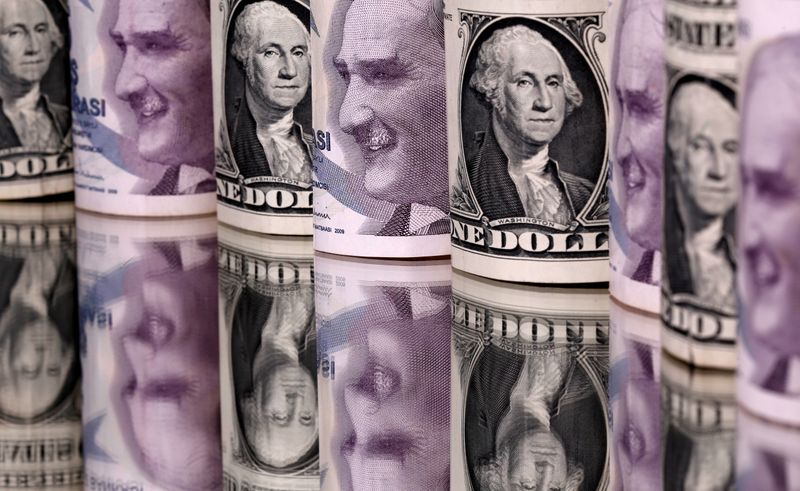(Bloomberg) -- The lira slipped for a third day as the euphoria surrounding last week’s rate hike fades and attention turns to the challenges Turkey’s economy faces.
The currency fell as much as 1 percent against the dollar, with the losses being compounded as long positions initiated after last week’s 625-basis-point interest-rate increase get stopped out, according to an Istanbul-based trader who declined to be named. The lira led emerging-market losses and its volatility is the highest among peers.
While the aggressive policy move was lauded for reaffirming the central bank’s independence, a 40 percent slide in the currency this year has dealt a blow to an economy that relies heavily on foreign inflows to keep growth ticking along. And with inflation nearing 18 percent, many investors think the central bank waited too long to act decisively.
The lira was trading 0.5 percent lower at 6.3444 per dollar as of 11:25 a.m. in Istanbul, taking losses this week to near 3 percent.
The corporate sector is sitting on a $216 billion foreign-exchange shortfall, and analysts say that pent-up demand for hard currency may be standing in the way of any meaningful rally. On Thursday, Turkish retail and corporate investors bought up to $2 billion dollars, according to traders, slowing the lira’s gains.
“I think it’s obvious that the domestic Turkish corporate sector is stuck short dollar-lira. Every dip they see is an opportunity to decrease that exposure,” said Saed Abukarsh, the co-founder of Dubai-based hedge fund Ark Capital. “We may see bouts of Turkish lira demand but the underlying problem is still there. Credibility. And domestics are not buying the story.”
In an effort to further shore up the currency, the central bank in Ankara raised the interest rate for lira-denominated reserve requirements to 13 percent from 7 percent, according to a document seen by Bloomberg News. Attention will next turn to the government’s medium-term economic program due Thursday, where investors will be looking for authorities to commit to a tight fiscal stance to help narrow the country’s twin deficits.
